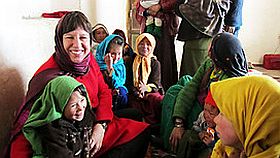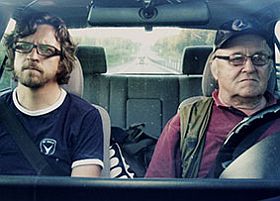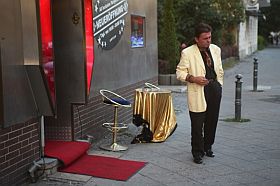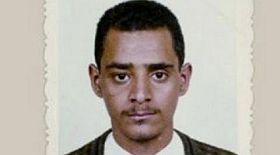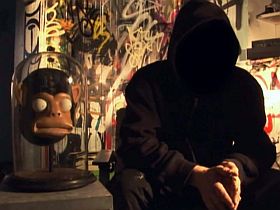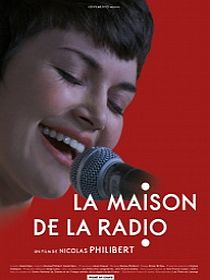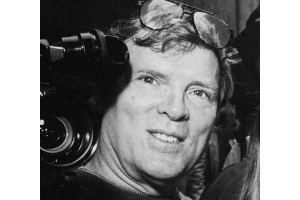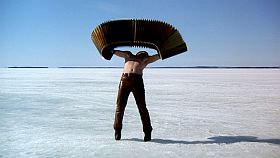


Magnificent7 2013/3
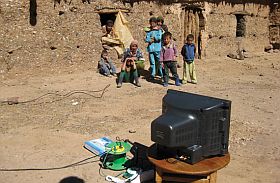
The festival in Belgrade enters into its third day, and the response from the audience has been, yes, magnificent! On the opening wednesday night the film by Swedish Malik Bendjelloul ”Searching for Sugarman” was met by great enthusiasm by the estimated close-to-2000 people, who watched the film. Some hundred less came for Jérôme le Maire’s beautiful ”Tea or Electricity”, nominated for the French-Belgian film award, named after Magritte, and to be distributed this evening in Brussels.
As usual some 30 young filmmakers/visual artists/journalists met with the director the day after the screening. As the director of the film about fabulous Rodriquez, and the whole crew around the film, are in Los Angeles preparing for the Oscars, and therefore could not be in Belgrade – Jérôme le Maire was the first one to talk to the workshoppers thursday morning, and he did that brilliantly, explaining about and showing clips from the three films that he had been making during the last decade. Amazing clips from ”Where is Love in the Palm Grove” shifted with quotes from his hybrid (documentary/fiction) ”Le Grand Tour”, two very different films in style and content. Also le Maire told about his work with ”Tea or Electricity” (photo), about how he approached the people in the mountains, being there for a long time, winning their confidence, before he started to operate the camera. And he shot for months and months, communicating with the villagers in Arabic, having problems with those of them, especially the women, who spoke in the Berber language that the director does not master. It was indeed an entertaining and well prepared two hours insight to filmmaking methods given by the Belgian director.
Thursday evening ”Sofia’s Last Ambulance” by Ilian Metev was shown. The director and his Croatian producer Sinisa Juricic were present at the screening that ended with a long lasting applause and a surprise award of 1000€ given by the private medical clinic BelMedic to the director of the film. Ilian Metev mentioned that today was the birthday – for those of you who have seen the film – of the doctor, Krassi, to whom and the two other of the ambulance team, the nurse and the driver, he would dedicate the award.
